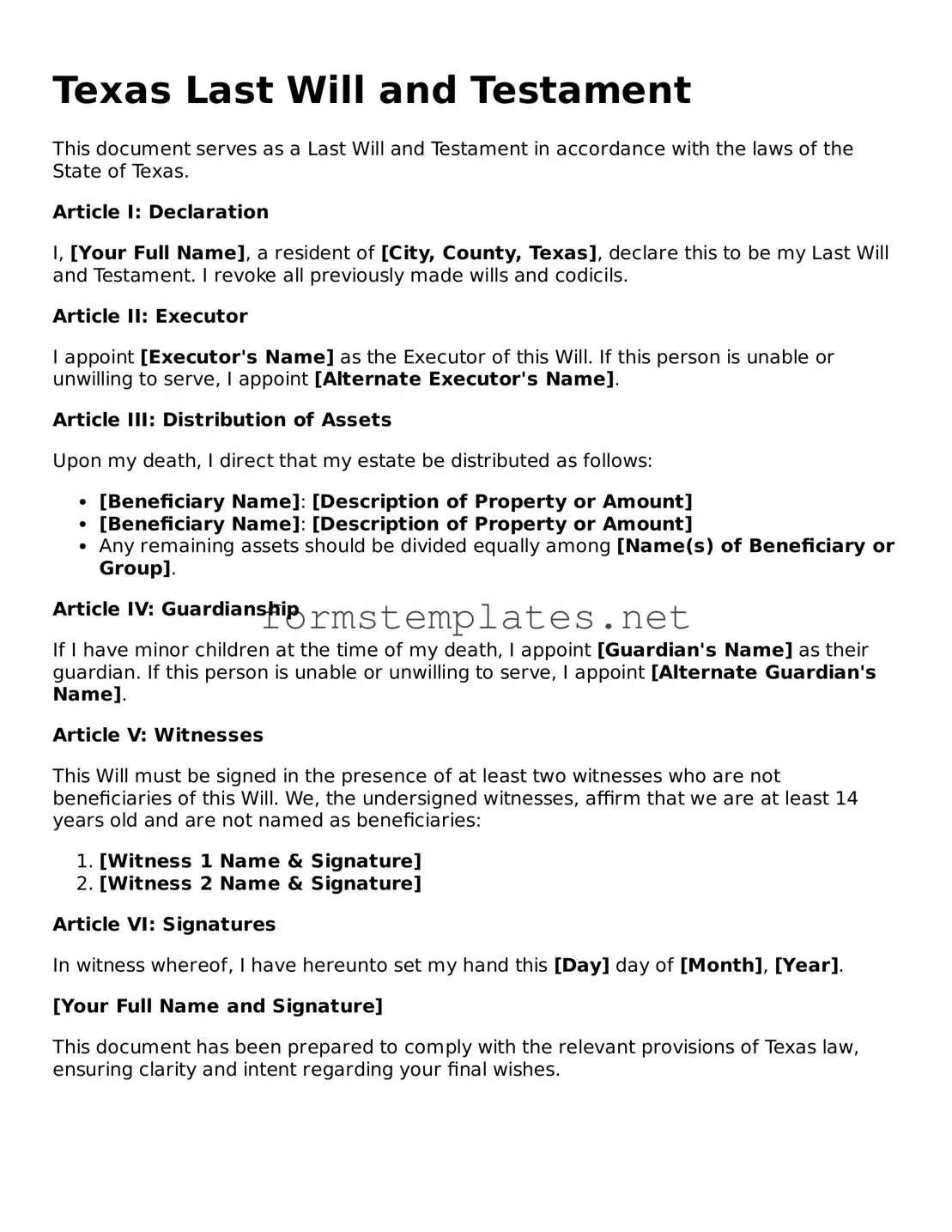Attorney-Approved Texas Last Will and Testament Template
A Texas Last Will and Testament form is a legal document that outlines how a person's assets and affairs will be managed after their death. This form ensures that your wishes are honored, providing clarity and direction for your loved ones. Understanding its importance can help you make informed decisions about your estate planning.
Open Editor Now

Attorney-Approved Texas Last Will and Testament Template
Open Editor Now

Open Editor Now
or
⇓ PDF Form
Your form still needs attention
Finalize Last Will and Testament online — simple edits, saving, and download.